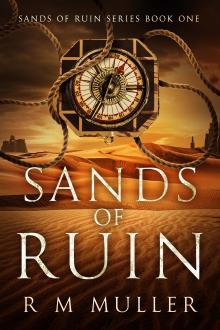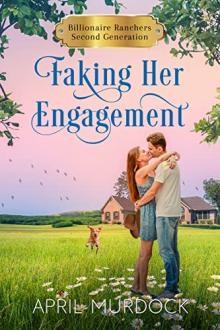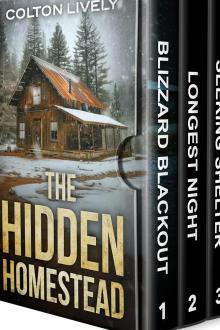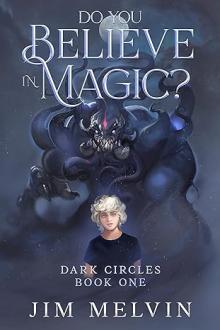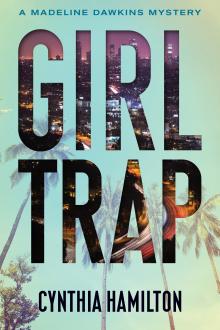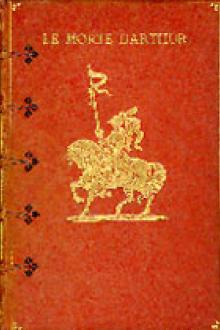Gleanings in Graveyards
Gleanings in Graveyards
a collection of Curious Epitaphs
Although this country may be behind many others in the poetic or classic character of its monumental inscriptions, it is certainly not so in the production of Epitaphs of a curious and absurd character. Whether it is that the British are, as a nation, witty and humorous, and that they are desirous that their peculiarities should be recorded even in the sanctuaries of their dead, or that they consider true records of the departed to be of little or no value, has yet to be shown. It is, however, remarkable that if we refer to the epitaphial records of other nations, we find that they are, as a rule, noted for their beauty, elegance, or truth, whereas of the many graveyards in Great Britain there is scarcely one that does not afford examples of humourous effusions.
Book Excerpt
AINTS', CAMBRIDGE.
She took the cup of life to sip, Too bitter 'twas to drain; She put it meekly from her lip, And went to sleep again.
* * * * *
At WOOD DITTON, on a gravestone in which is fixed an iron dish, according to the instructions of the deceased:--
On William Symons, ob. 1753, aet. 80.
Here lies my corpse, who was the man That loved a sop in the dripping pan; But now, believe me I am dead, See here the pan stands at my head. Still for sops to the last I cried, But could not eat, and so I died. My neighbours, they perhaps will laugh, When they do read my epitaph.
CAIUS COLLEGE CHAPEL, A.D. 1613:--
On William Webbe.
A richer Webb than any art can weave, The Soule that Faith to Christ makes firmly cleave. This Webbe can Death, nor Devils, sunder nor untwist, For Christ and Grace both groundwork are and List.
* * * * *
At CASTLE CAMPS the following quaint epitaph on a former rector:--
Mors mortis morti mortem nisi morte de
FREE EBOOKS AND DEALS
(view all)Popular books in Non-fiction, Fiction and Literature
Readers reviews
4.0
LoginSign up
(1861) Non fiction / Historical
R: * * * * *
Plot bullets
Epitaphs from English gravestones.
Some religious, others witty, humorous and even revengeful.
Some samples
o Philippa Brown, died November 22nd, 1738, aged 63.
Here I lie, without the door, The church is full, 'twill hold no more; Here I lye, the less I pay, And still I lie as warm as they. When thou art dead, let this thy comfort be, That all the world by turn, must follow thee.
o Here lies Robert Trollop, Who made yon stones roll up: When death took his soul up, His body filled this hole up.
o On Anne, daughter of Joseph Baynham, Died 16th Aug. 1632.
Shee had not spunn out Thirtie dayes, but God from paine took her to joyes; Let none their trust in worldly Bliss, All youth and age must come to This, but Manner how, place where, time when, Is known to God, but not to men; Watch, Pray, Repent, and sinne forsake, Lest, unprepared, Death thee should take,-- Then happy Thou that so shall dye, To Live with God Eternalye.
o Here lies I and my three daughters, Killed by a drinking the Cheltenham waters; If we had stuck to Epsom salts, We'd not been a lying in these here vaults.
o On Hannah, wife of Jeremiah Soffe, died 1832.
When I am dead and in my Grave, And all my Bones are Rotten. This when you see, Remember me, Or lest I should be forgotten.
o Here a lovely youth doth lie, Which by accident did die; His precious breath was forced to yield, For by a waggon he was killed!
o Grieve not for me, my husband dear, I am not dead, but sleepeth here; With patience wait, prepare to die, And in a short time you'll come to I.
o Several years since, an inhabitant of Woolwich died, leaving a testamentary order that his tombstone should be inscribed with the well-known lines:--
Youthful reader, passing by, As you are now, so once was I, As I am now, so you must be, Therefore prepare to follow me.
The widow of the deceased, who did not honour her lord more than the ordinary run of wives, obeyed her late husband's injunctions, but added a postscript of her own composition--
To follow you I am not content, Until I know which way you went.
R: * * * * *
Plot bullets
Epitaphs from English gravestones.
Some religious, others witty, humorous and even revengeful.
Some samples
o Philippa Brown, died November 22nd, 1738, aged 63.
Here I lie, without the door, The church is full, 'twill hold no more; Here I lye, the less I pay, And still I lie as warm as they. When thou art dead, let this thy comfort be, That all the world by turn, must follow thee.
o Here lies Robert Trollop, Who made yon stones roll up: When death took his soul up, His body filled this hole up.
o On Anne, daughter of Joseph Baynham, Died 16th Aug. 1632.
Shee had not spunn out Thirtie dayes, but God from paine took her to joyes; Let none their trust in worldly Bliss, All youth and age must come to This, but Manner how, place where, time when, Is known to God, but not to men; Watch, Pray, Repent, and sinne forsake, Lest, unprepared, Death thee should take,-- Then happy Thou that so shall dye, To Live with God Eternalye.
o Here lies I and my three daughters, Killed by a drinking the Cheltenham waters; If we had stuck to Epsom salts, We'd not been a lying in these here vaults.
o On Hannah, wife of Jeremiah Soffe, died 1832.
When I am dead and in my Grave, And all my Bones are Rotten. This when you see, Remember me, Or lest I should be forgotten.
o Here a lovely youth doth lie, Which by accident did die; His precious breath was forced to yield, For by a waggon he was killed!
o Grieve not for me, my husband dear, I am not dead, but sleepeth here; With patience wait, prepare to die, And in a short time you'll come to I.
o Several years since, an inhabitant of Woolwich died, leaving a testamentary order that his tombstone should be inscribed with the well-known lines:--
Youthful reader, passing by, As you are now, so once was I, As I am now, so you must be, Therefore prepare to follow me.
The widow of the deceased, who did not honour her lord more than the ordinary run of wives, obeyed her late husband's injunctions, but added a postscript of her own composition--
To follow you I am not content, Until I know which way you went.
- Upvote (0)
- Downvote (0)
Written in 1861, this short book is a collection of epitaphs found in graveyards in the British Isles.
Ranging from humorous to tragic, from bearing awful puns to downright sarcastic, it is amazing what people allow on their tombstones, the most cynical epitaph being the gravestone remarking on the purity and innocence of the twelve-year-old child buried beneath, but some wiseacre added the inscription saying that she had not yet reached the age of thirteen.
Ranging from humorous to tragic, from bearing awful puns to downright sarcastic, it is amazing what people allow on their tombstones, the most cynical epitaph being the gravestone remarking on the purity and innocence of the twelve-year-old child buried beneath, but some wiseacre added the inscription saying that she had not yet reached the age of thirteen.
01/31/2011
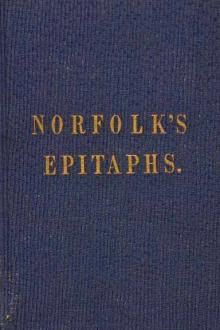
 Free Download
Free Download
